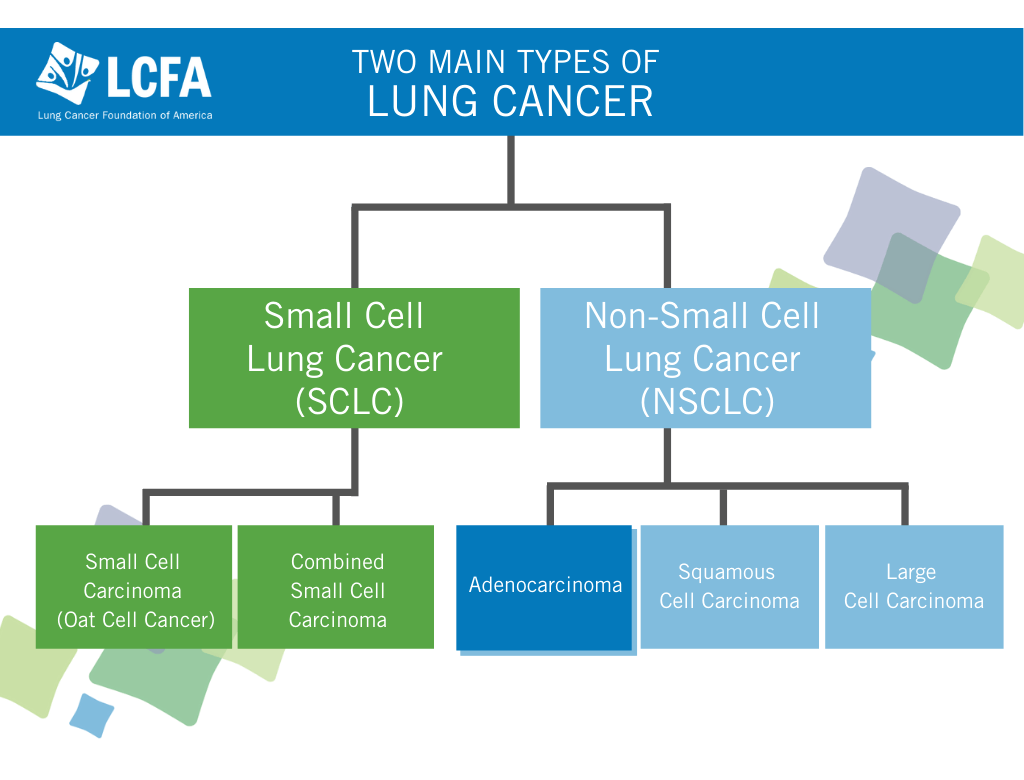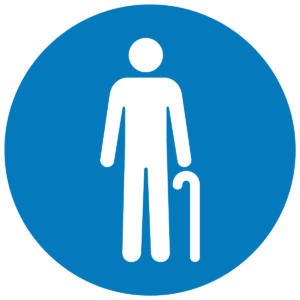What Are the Symptoms of Adenocarcinoma?
Symptoms of adenocarcinoma of the lung may take a long time to appear and may be less obvious than other forms of lung cancer. Lung adenocarcinoma symptoms can include fatigue, subtle shortness of breath, or upper back and chest pain, as well as a chronic cough or coughing up blood in advanced stages of the disease.
What Treatment Options Are There?
While a lung cancer diagnosis may be scary, there are more reasons now than ever before to continue to be hopeful about treatment—new and exciting scientific discoveries have been made over the past decade!
To understand treatment options, it’s important to first understand the stages of any cancer diagnosis. A physician will typically categorize each type of cancer as occurring between stages I (1) through IV (4). Although some cancers also have a stage 0 (zero; also called “carcinoma in situ,” or CIS).
Treatment options for adenocarcinoma of the lung depend on what stage the cancer is in, as well as other factors.
Personalized Medicine
Several innovative therapies are considered “personalized medicine.” These treatments are specific to an individual’s own type of cancer and own body. Personalized medicine includes targeted therapies, immunotherapies, and combinations of treatments.
- Targeted Therapies. Targeted therapies are a type of personalized medicine that specifically target genetic mutations (changes in your genes) in cancer cells. Several types of these genetic mutations have been linked to adenocarcinoma of the lung. In fact, the following mutations occur in around 70% of people with lung adenocarcinoma.
The most common genetic changes in adenocarcinoma of the lung are changes in the epidermal growth factor receptor (EGFR) gene, the Kirsten rat sarcoma (KRAS) gene, and the anaplastic lymphoma kinase (ALK) gene. These advances in personalized medicine are groundbreaking. Genetic or biomarker testing is now a routine part of diagnosis and staging in people who have lung adenocarcinoma.
- Immunotherapy. Immunotherapy is another relatively recent development that is an exciting area of treatment. Using a person’s own immune system, this treatment recognizes and attacks cancer cells.
- Combination Treatments. Targeted therapies and immunotherapy are also being used in combination with other, more established treatments. These treatments including surgery, chemotherapy, and radiation. Combination treatments are also known as “multimodal treatments.”
Other Therapies
Treatment options for lung adenocarcinoma can also include these types of treatment, which may sound more familiar:
- Surgery. Surgery may be used to treat lung adenocarcinoma. Lung adenocarcinoma is an NSCLC. In this type of cancer, a surgeon will operate to remove the tumor. For early stage adenocarcinomas, surgery is the preferred treatment. For more advanced tumors, surgery may also be used in combination with chemotherapy and radiation therapy. However, surgery may not be preferred in all early stage lung cancers. Your oncologist will be the best person to determine the best treatment for you.
- Chemotherapy. Chemotherapy uses pills, medicines injected in your veins, or both to shrink or kill cancers. This treatment may be used alone or with radiation before or after surgery. Prepare for chemotherapy by learning what to expect.
- Radiation Therapy. Radiation therapy uses high-energy rays (similar to X-rays) to destroy cancer cells. You can also learn what to expect during radiation therapy.




